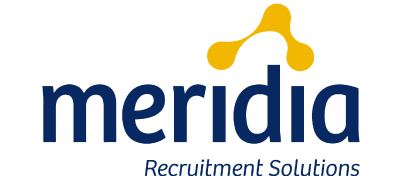
Career Advice for the iPod Generation
Like most people, I’m amazed at the pace of innovation. Technology has become so available to us that we increasingly take it for granted. Flat screen TVs are a fraction of the cost they once were. The result is they have become ubiquitous in our daily lives. High powered tablets and smart phones are at our finger tips with all their latest bells and whistles. We upgrade our “device of choice” so often the relative value of new technology lessens with each passing day. Much of this is good news in that these modern conveniences are a tremendous resource for much of the world’s population. The benefits of cheaper, readily available technology are too numerous to mention. The amount of information we can access is truly mind boggling and has changed the lives of millions. However, there are potential downsides to this shift in mindset.We now dispose of things once considered valuable at an alarming rate and with little hesitation. If something is deemed outdated or less than leading edge we simply throw it away. Repairing our once cherished gadgets isn’t even possible anymore as they are actually designed to be discarded. And this fixation on the latest and greatest isn’t limited to high-tech items; we see it in more frequent purchases of cars, homes, and a variety of other everyday items. While environmentalists may disagree, one could argue it’s good for the economy so why not have the latest and greatest of everything? But what if this disposable mentality we have adopted carries over to other aspects of our lives? Or worse yet, what if it already has?
Over my 15 years in the recruitment and HR consulting business, I’ve noticed a trend of decreasing tenure among employees. More people today seem intent on “upgrading” their jobs with greater frequency than before... much like our beloved devices. It will come as no surprise that the generation that changes jobs most often is the newest generation to join the workforce, namely the Millennials. The “iPod Generation,” as I refer to it, has grown-up with the latest smart phones and tablets and has, in some cases, applied this insatiable need for something new and different to their career choices. I’m not suggesting that changing jobs is a bad thing. That would be rather hypocritical of me given my line of work! Rather, my point is that job changes should be well thought out, thoroughly researched, and never taken lightly. Some adversity, conflict and occasional disappointment come with every job. At times, employees can be too quick to throw in the towel in search of something perceived as better or at least different. The result we see far too often when we meet with individuals is a career history that has new positions listed every 12-24 months. The challenge this poses to the individual is that he or she may be perceived to lack loyalty, perseverance and, at times, maturity.

"Job changes should be well thought out, thoroughly researched, and never taken lightly. Some adversity, conflict and occasional disappointment come with every job."
- Kevin Stoddart, Managing Partner
The organizations we work with still value loyalty and commitment when reviewing candidate qualifications. So, it’s important when young professionals are building their careers that they can envision what their résumés will someday look like and be pleased with that mental picture. Will it appear as a patchwork of random choices, with various jobs discarded along the way; or will it tell the story of a professional who has managed his or her career thoughtfully and strategically, demonstrating commitment and a long-term track record of success? I can tell you – without question – employers prefer the latter. Leading organizations want to see that a person’s background includes a demonstrated commitment that you would expect of someone who perseveres, focuses on goals and achieves them. This type of dedication is measured in years rather than months.
So, before you discard your job like last year’s iPod or smart phone, pause and make sure the position you have isn’t worth hanging onto a while. Changing jobs is often the right decision. But don’t change too often and carefully considered the long-term implications first. Be strategic with your decisions as only you can manage your career. Keep your goals in mind so every step moves you forward towards your ultimate career objectives. In the end, these choices will define your career so be smart and consider that sometimes staying put might actually be the best move of all.
Ready for a career move?





